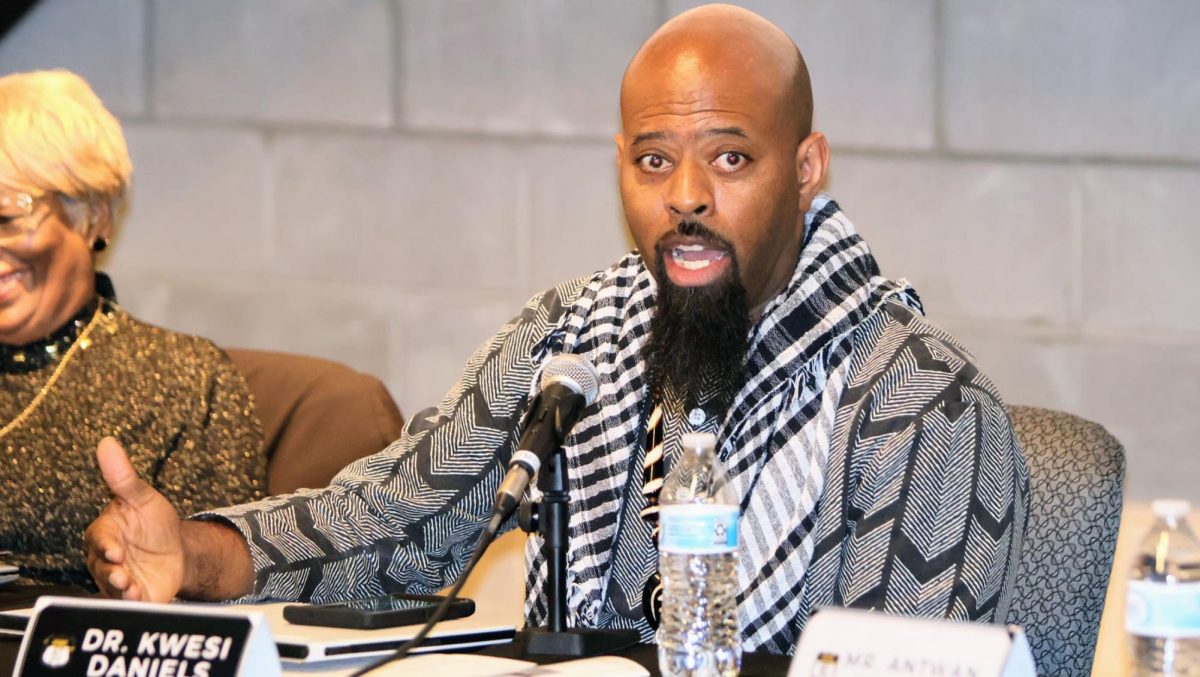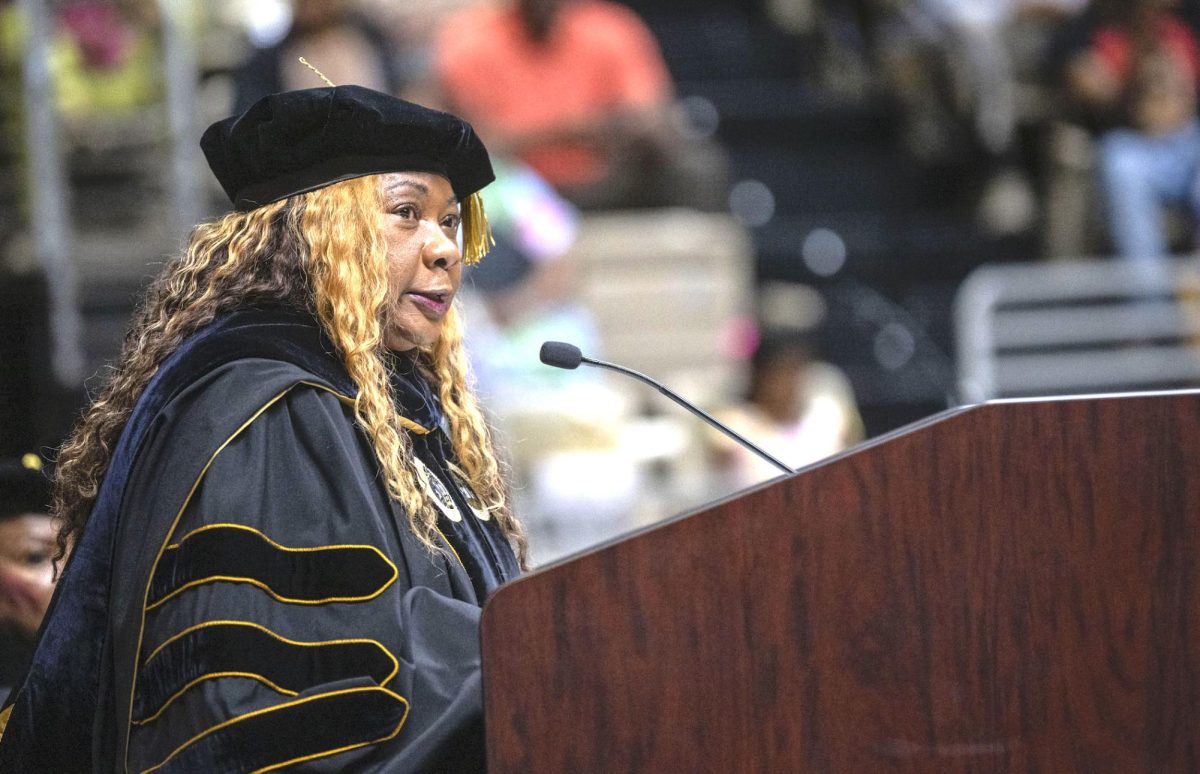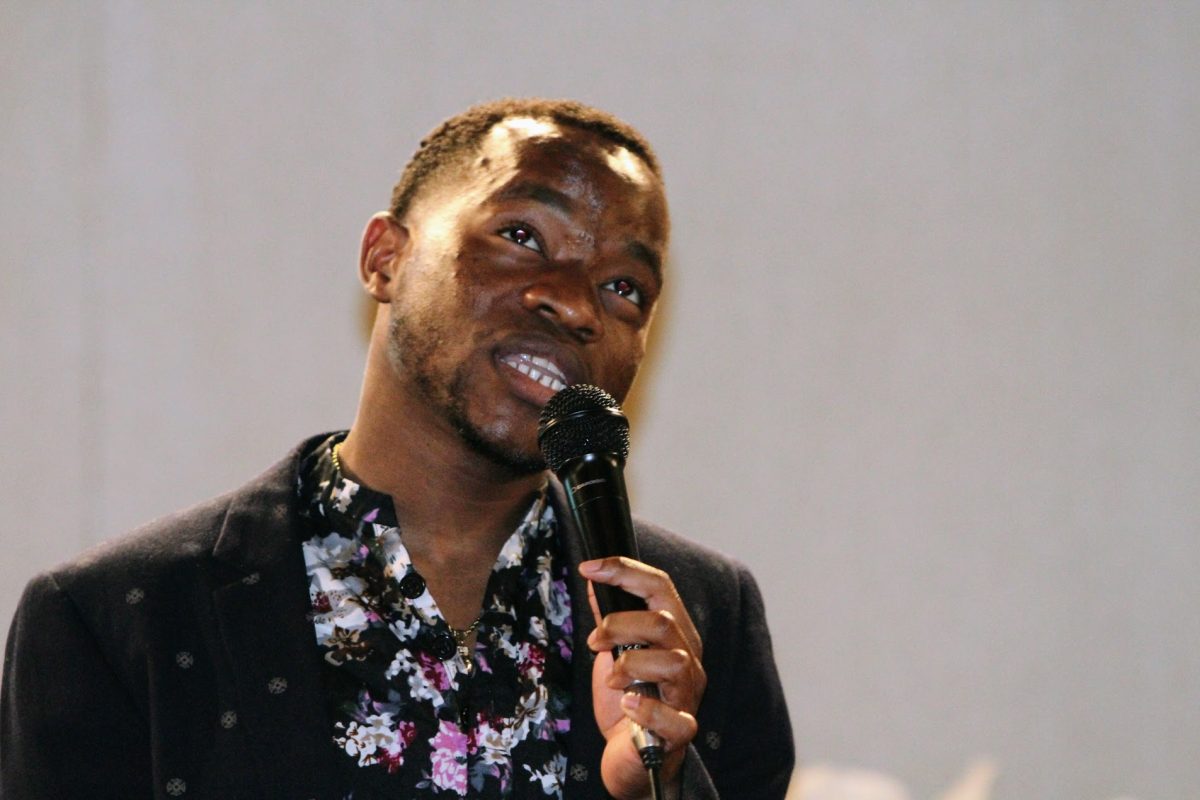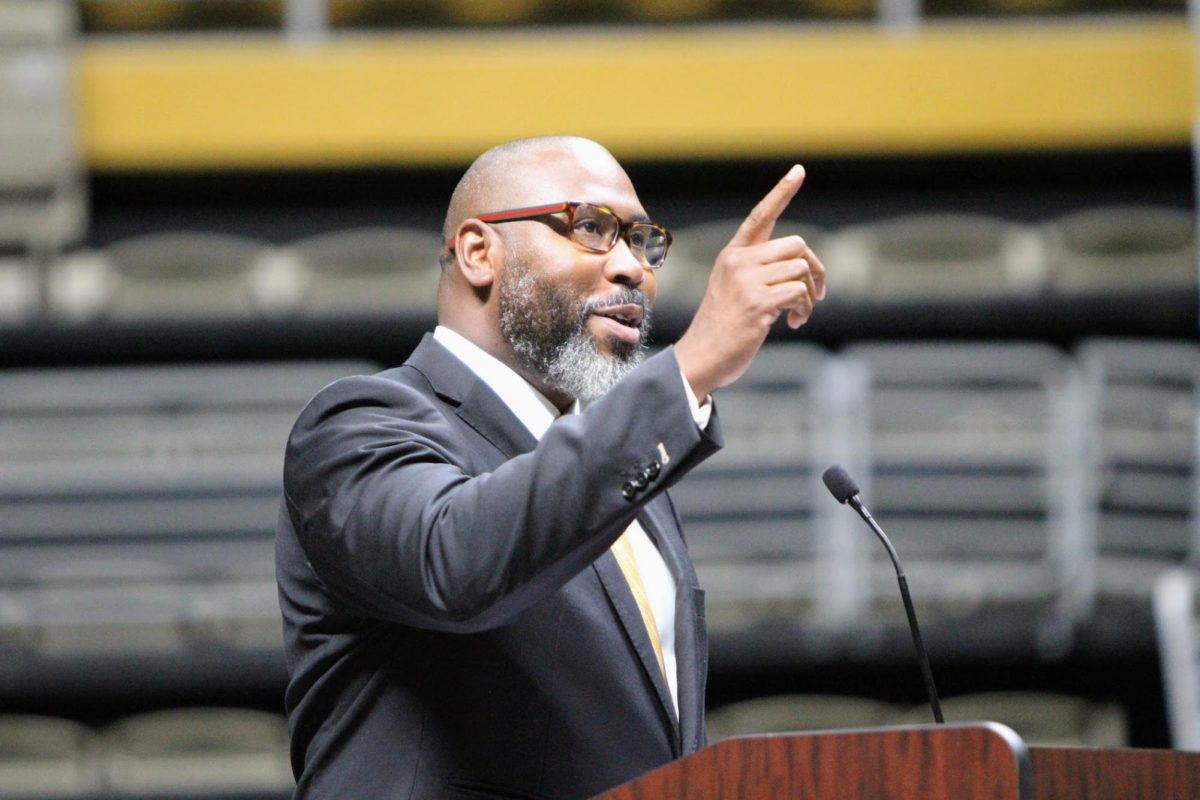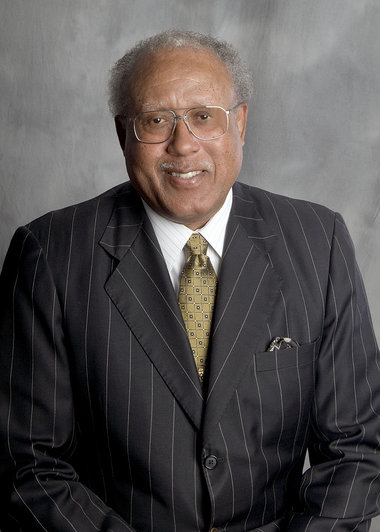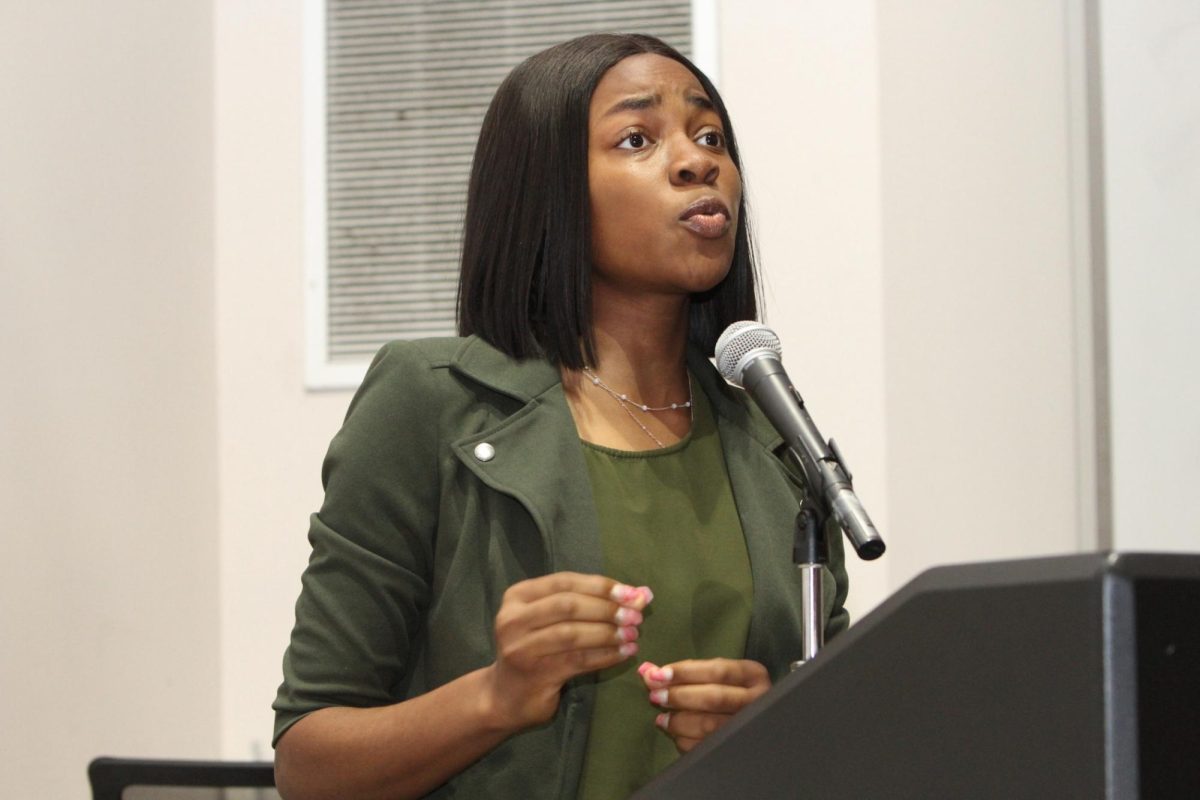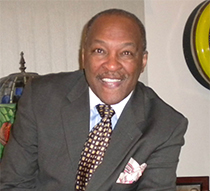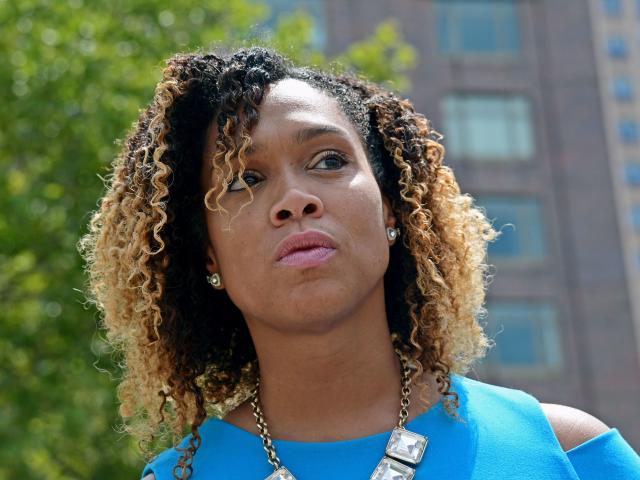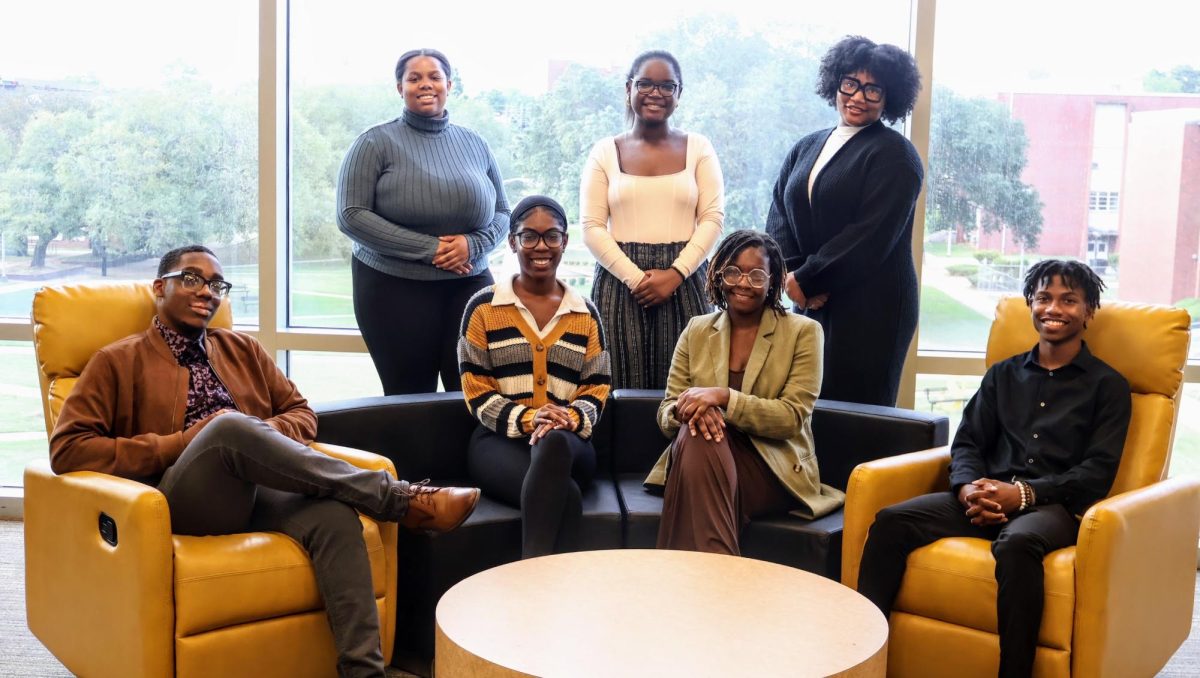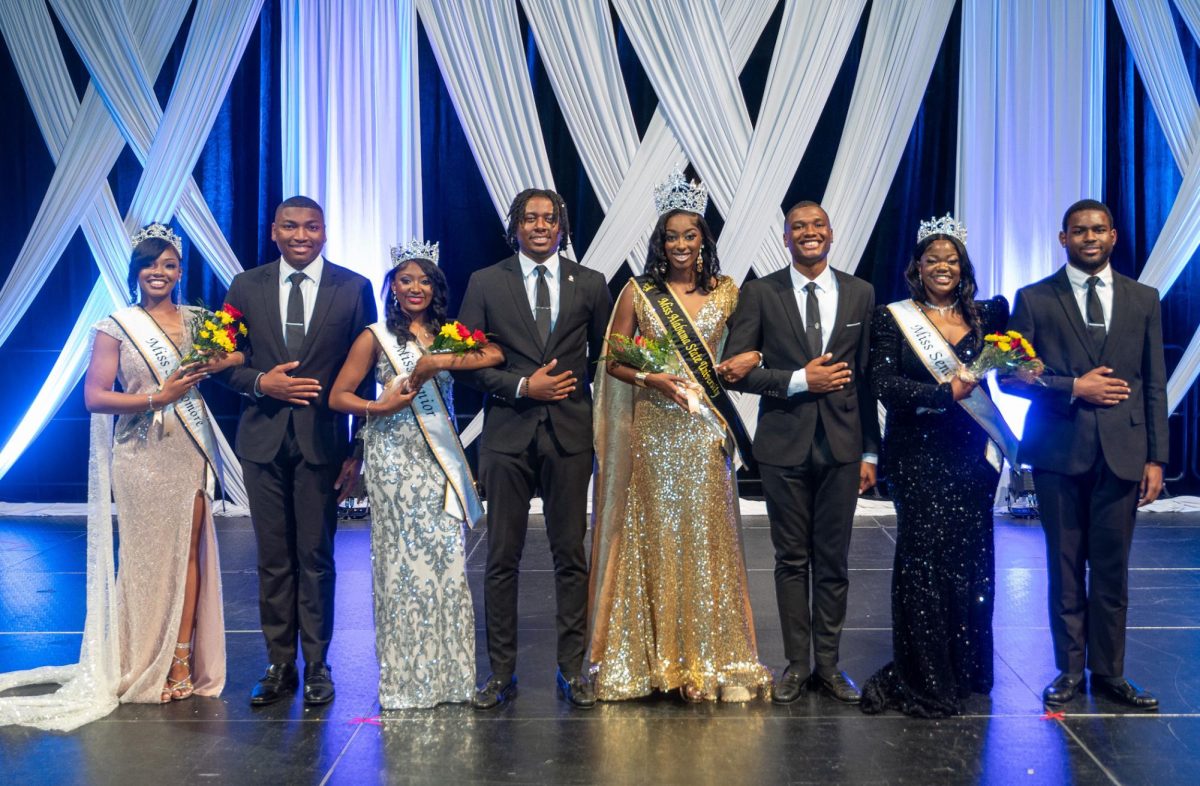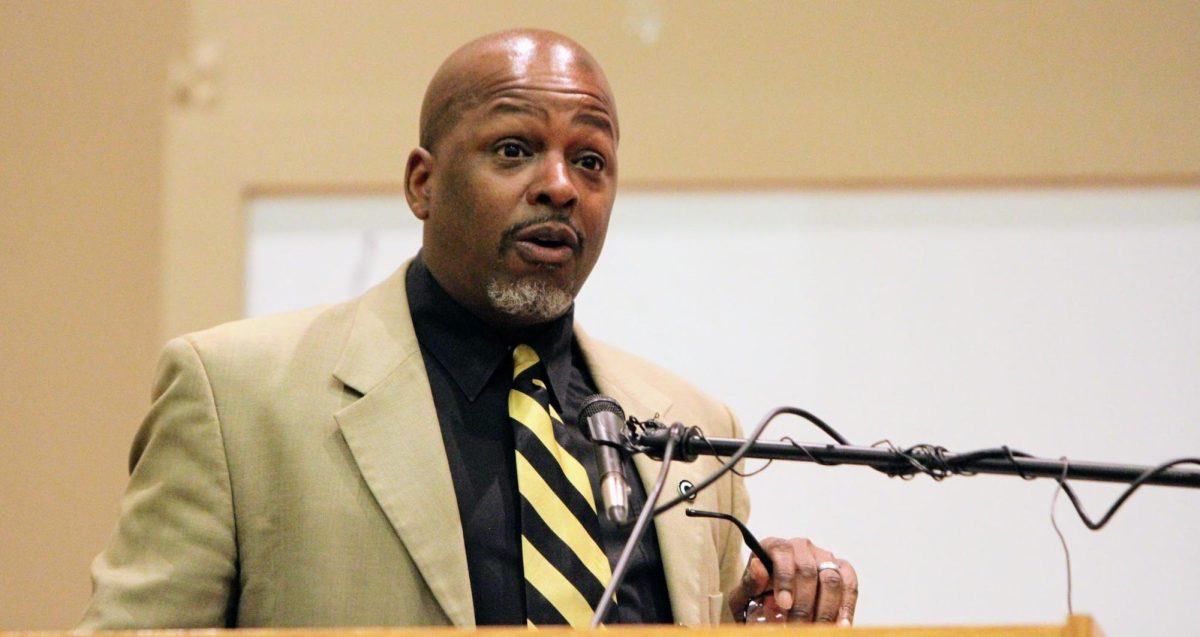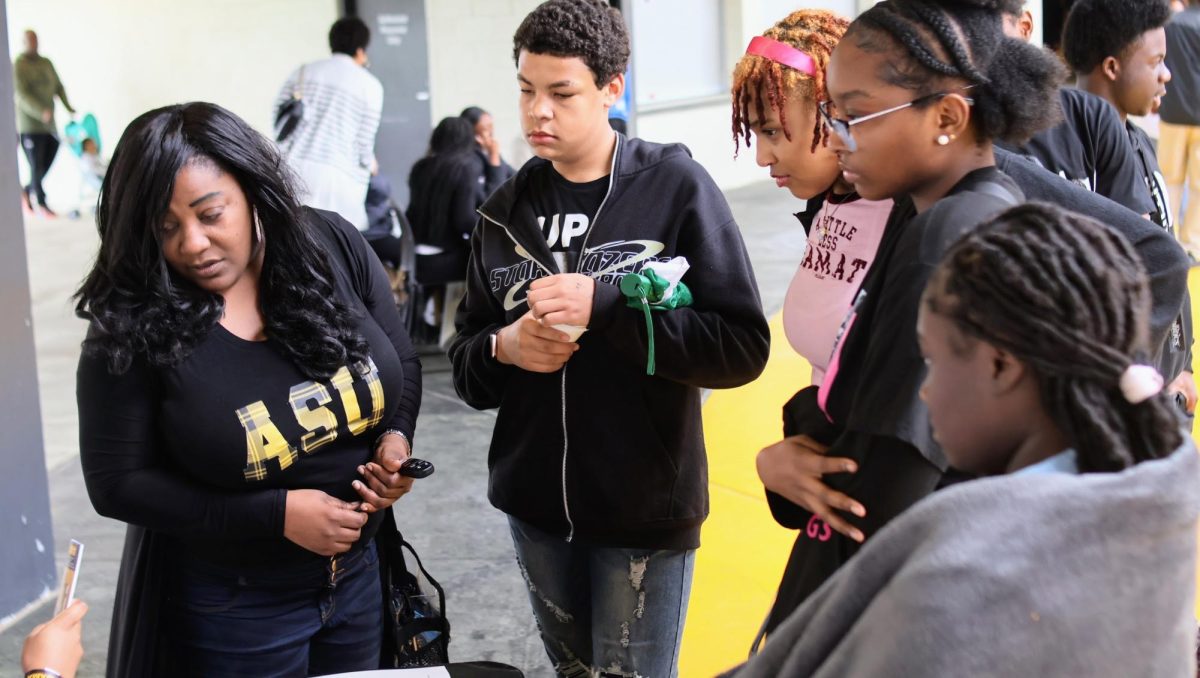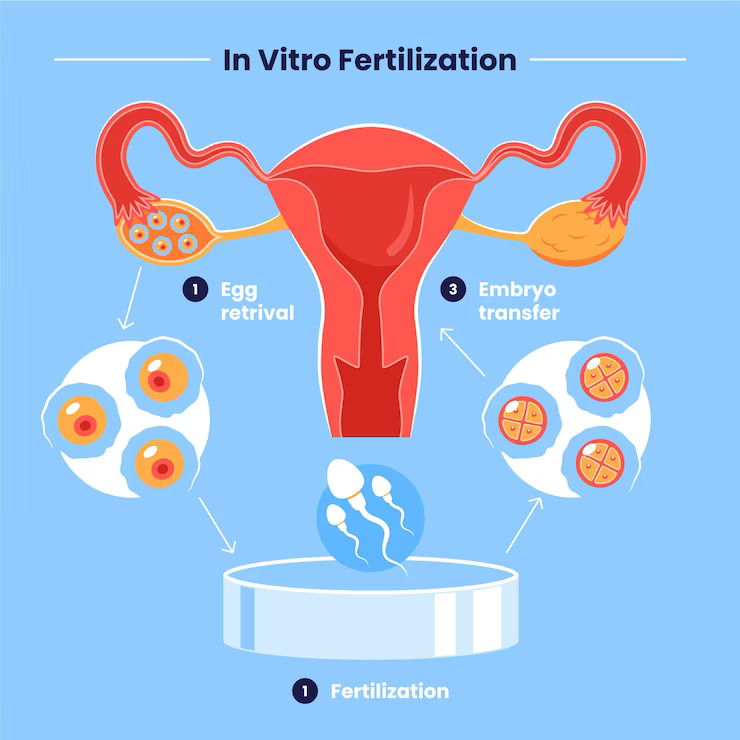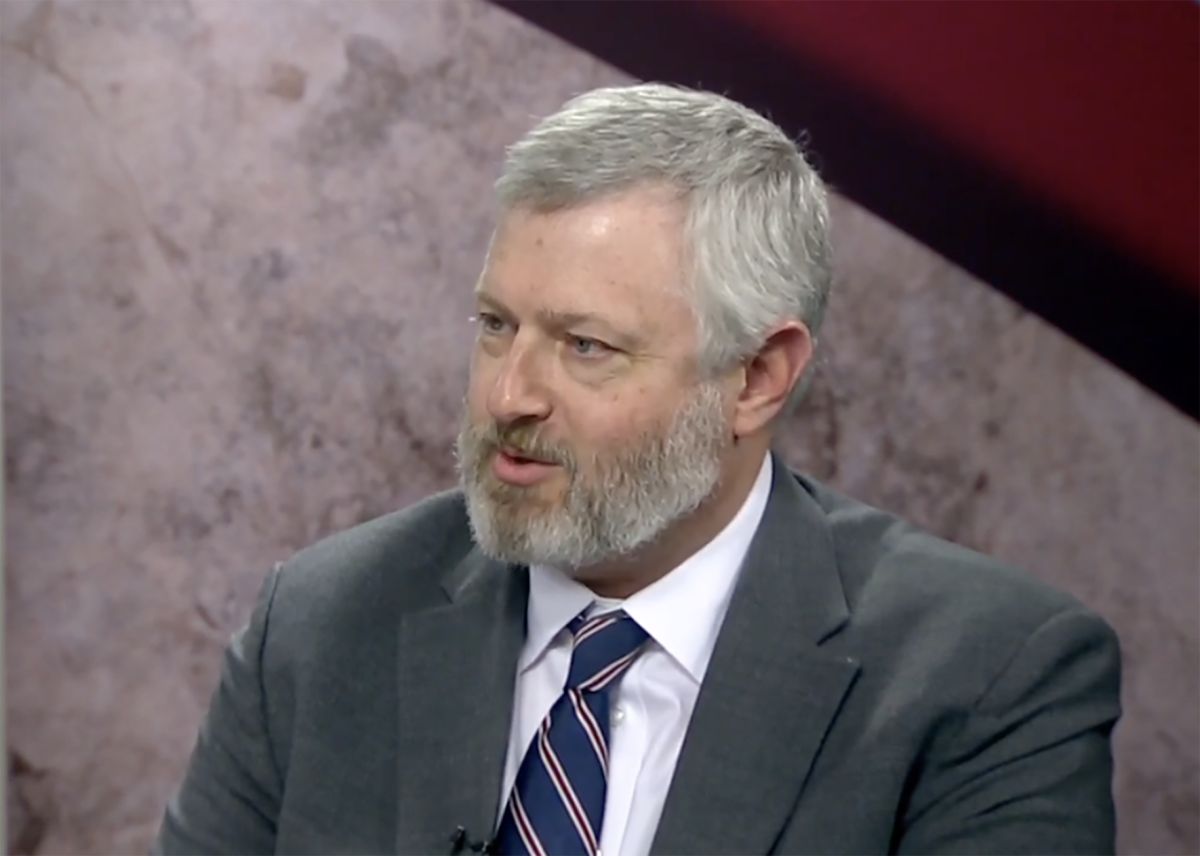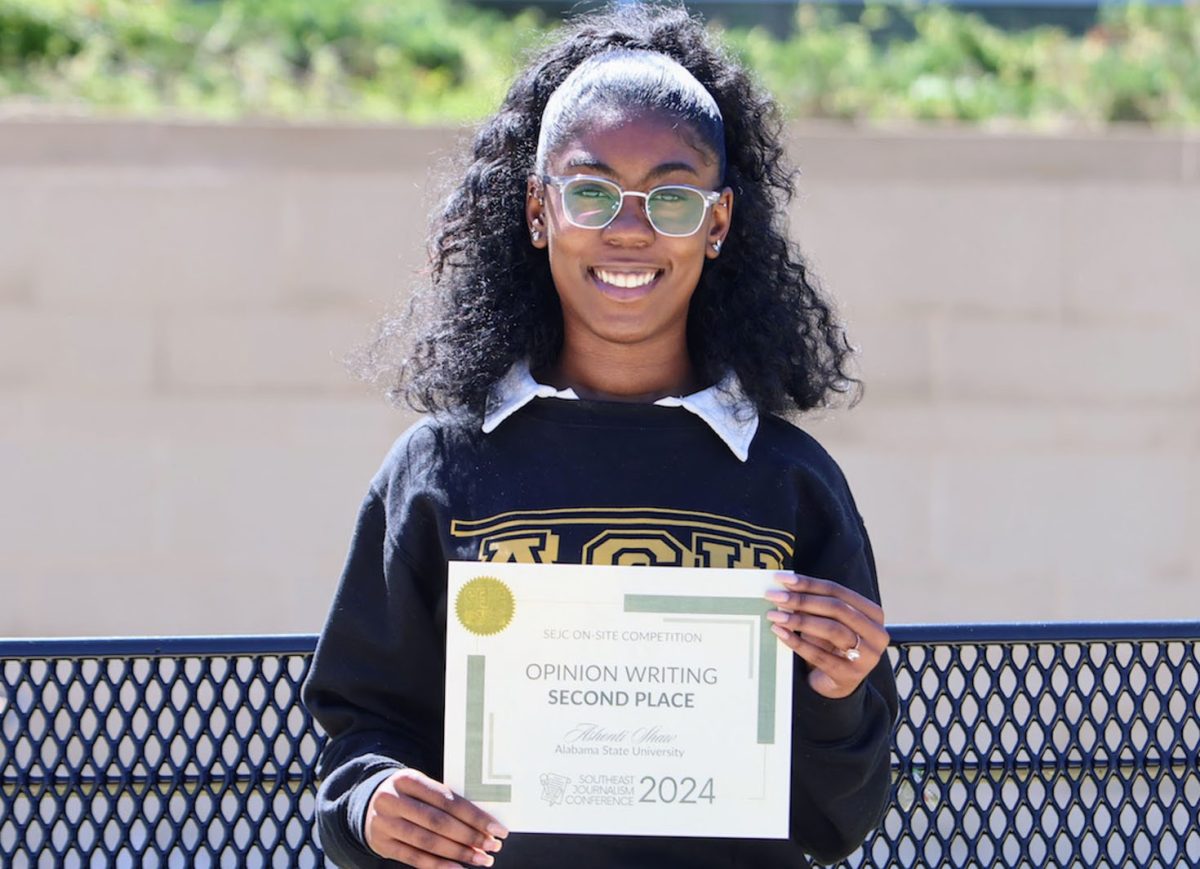Montgomery Interpretive Center of Selma to Montgomery National Historic Trail hosted the “ Highway 80 History Symposium: Exploring Alabama’s Civil Rights Corridor” on Tuesday, Feb. 26.
This event, held from 9 a.m. to 4 p.m., offered attendees a unique opportunity to delve into the untold stories and pivotal figures of the Civil Rights Movement in the 1950s and 1960s.
During the first session of this event, three esteemed speakers: Rabbi Ben Alpert, William Waheed, and Greg Carr, Ph.D., shed light on key moments and personal experience, providing fresh perspectives on this transformative era.
Alpert shared his personal experiences growing up amidst the civil rights turmoil in Montgomery. His segment, “Inside and Outside: Recognizing the Dual Consciousness of Blacks and Jews in Montgomery During the Civil Rights Movement,” offered a poignant glimpse into the challenges and complexities faced by both African Americans and Jews during that tumultuous time. Alpert was at ground zero of the Montgomery civil rights struggle and gave attendees a first-hand account of his experiences as a young white child growing up in the middle of the struggle.
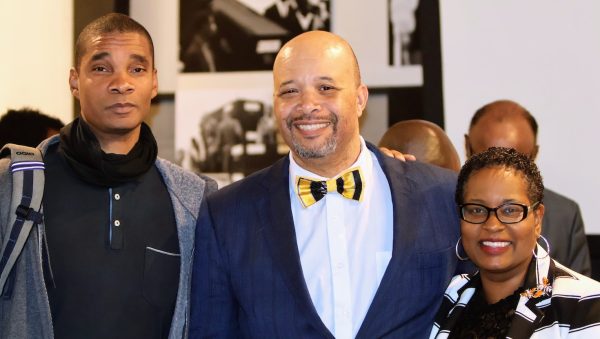
(Justin B. Freeman)
“I had no clue. I had no idea what was going on. I was living and walking through history, and I was just a teenager looking for an adventure,” Alpert said. “You’ve got to understand that I’m white in a black community and I’m a Jew in a Baptist community. I had to keep a lot inside, but I had a lot of work to do outside.So that’s where the term ‘inside-outside’ came from. It was very sensitive about where you said what and who you said it to. I love Montgomery. Montgomery’s come a long, long way. We’ve got, of course, a long way to go. Montgomery was not the easiest place as a Jew and as a young boy who was raised in the Black community to grow up. It was pretty tough.”
Waheed’s segment, “A Review of the Political Significance of Browder v. Gayle,” highlighted the often-overlooked impact of the court case that followed the Montgomery Bus Boycott. In this segment, Waheed underscored the importance of Browder v. Gayle in an overview of its federal action and how it shaped new approaches in the civil rights strategy.
“One of the things that happened with the Brown v. Board ruling is that it didn’t touch Plessy. Plessy is a transportation case. I’m not a lawyer, but I try to explain this stuff and what I always legally discern. Plessy is about transportation, and with transportation, you’ve got a transportation case that goes before the Supreme Court,” Waheed said. “You can’t bring an education case and change a transportation case. Judge Morgan said, “We’re not going to argue Plessy in this courtroom. What we were going to say, there’s no room for Plessy in the field of education. But Plessy had not been overturned, and so we get the Browder v. Gayle case, which was a case that says, the city of Montgomery is operating a bus system with a private entity, and they are denying Black citizens fair treatment, equal justice and due process by the way that they treat them on the bus line. That is the argument in Plessy.”
Carr’s presentation, “Answering the Macedonian Call – Martin Luther King’s Use of Aristotelian Logic in the Letter from Birmingham Jail,” delved into the intricate use of logic by King in his famous letter. Carr examined how King employed Aristotelian appeals of logos to explain, rather than defend, his actions during the civil rights struggle. He elucidated, “King wrote what can easily be considered the most effective argumentative essay written in American history.”
Carr mentioned that King used reason and logic to address misconceptions about his role in the protests, highlighting inaccuracies in the clergymen’s statements. He specifically refuted the claim that the protests were led by an outsider, providing a compelling argument to support his position.
“He served as the Southern Christian Leadership Conference president, which had 85 affiliates in the south, of which the Alabama Christian Movement for Human Rights was a member,” Carr said. “Rev. Fred Shuttlesworth was the president. He emphasized how organizations shared information. Thirdly, he was invited to Birmingham by members of the Alabama Christian Movement for Human Rights. Most importantly, King emphasized his freedom as an American citizen to travel to any part of the country as he pleased, especially in places where treatment of American citizens was being criticized.”
In the second session of the day, the event explored Alabama’s Civil Rights key figures and institutions.
Kwesi Daniels, Ph.D., discussed the Black Belt Community Building, drawing parallels between Booker T. Washington’s efforts and the legacy of Tuskegee Institute.
During Daniel’s segment he emphasized Washington’s reasons for inviting farmers to Tuskegee University to help address their needs.
“Washington realized that by providing an education that met the needs of people, we could also start to lift people up,” he said. “So, this was an example of the work that was happening by engaging the community, by providing a curriculum that will meet their needs.”
There were also additional segments from Marilyn Hoytt, Ph.D., who highlighted the Tuskegee Connection along Highway 80, emphasizing its impact on the region’s civil rights history and John F. Knight Jr., LH.D., who examined the Knight v. Alabama, a case pivotal in advocating for equity and fairness for HBCUs.
Joshua Ledgister, a sophomore psychology major, was among the attendees who found the event enlightening.
“The only reason I heard about it was because of my teacher,” he said. “I appreciated all the people he invited out because it brought a different perspective. When Rabbi had spoken about how he was beaten, and mind you, he’s a white person, it’s like you really understand the full scope.”
Junior interdisciplinary studies major Ma’Kayla Jones was another student who found that the event gave her another perspective from what she was already taught in school.
“I really enjoyed coming to this event and it was such an eye-opener for me,” Jones said. “I never realized how much more there was to the Civil Rights Movement than what we learned in school. Hearing about some of the panel’s personal experience really got me thinking about our generation and the challenges we still need to tackle. It’s not just history; it’s our reality, and events like this help us understand where we’re coming from and where we need to go.”
Robert O. White, J.D., a multifaceted educator who teaches African American Humanities, alongside Ram Alagan, Ph.D., the interim director of the W.E.B. Du Bois Honors Program, has spent the last decade studying the Civil Rights Movement, focusing particularly on Highway 80 and its social, economic, and geographic significance.
This symposium, aims to shed light on untold stories and heroes of the movement. White’s dedication to education and knowledge extends beyond the classroom, as he emphasizes the importance of young people using their energy and dreams to effect positive change in their communities.
“I want students to understand that it is their responsibility to change their circumstances, that they have to use knowledge, not necessarily a degree, right? Because a degree is just that – it’s a degree. But knowledge is something that you’re constantly in pursuit of, right? And you can’t stop the pursuit and use this youth – all this energy – all of these dreams and all this imagination that young people have, use it to change things, you know? Because young people such as yourself and others, you all have such a beautiful life to look forward to. You really do,” White said.
He continued.
“The chances of you being successful are very high, right? But who along the way are you going to help? So that’s a moral decision that you have to make and I tell you, if you invest in people who can’t help themselves, it’ll always turn out for your benefit.”







